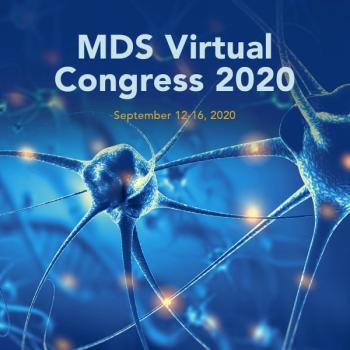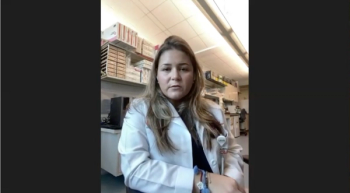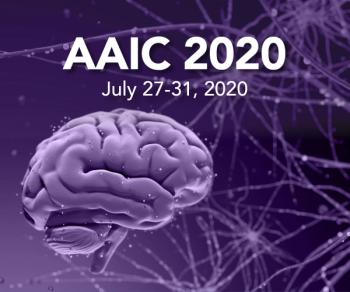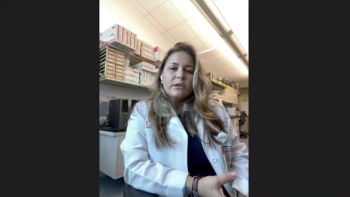
Benefits of levodopa-carbidopa intestinal gel lasted throughout the day and showed greater benefits of continuous dopaminergic stimulation in disease control than immediate release oral capsules.

Benefits of levodopa-carbidopa intestinal gel lasted throughout the day and showed greater benefits of continuous dopaminergic stimulation in disease control than immediate release oral capsules.

The COMT inhibitor, which was approved in April 2020, may be a worthwhile option as a first-line adjunctive treatment for those with Parkinson disease with motor fluctuations.

Improvement in dyskinesia occurred after 2 weeks of treatment with levodopa-carbidopa intestinal gel and was sustained throughout the study.

No new safety signals were observed in the combined analysis of ponesimod from the phase 2b core study and extension study.

Supporting patient activation of their knowledge, skill, and confidence in managing their health may empower patients in times of stress.

Three-year data from a phase 1 study of Voyager Therapeutics’ VY-AADC01 suggest it is safe and offers potential benefits for patients with Parkinson disease.

Scores reflective of tremor in each body part and task performance improved by 71% in patients from baseline before first thalamotomy to 6 months after second thalamotomy.

After 3 months of treatment, an overwhelming number of clinicians and patients preferred directional over omnidirectional DBS.

Results from a phase 2 pilot study of nabilone in Parkinson disease suggest that the synthetic cannabinoid might hold therapeutic potential for nonmotor symptoms.

Treatment-naïve patients showed consistent results with the overall study population that was observed in the ASCLEPIOS I and II trials.

Patients with relapsing multiple sclerosis and high levels of fatigue were less likely to be employed full-time than those with MS with low fatigue.

Despite previous literature documenting cardiovascular disease comorbidity in patients with narcolepsy, pitolisant treatment did not demonstrate any cardiac safety signals.

The FDA-approved agent showed significant impact in decreasing standard deviation of lateral position, a measure used to assess driving performance.

Pooled data from 2 clinical trials of the H3-receptor antagonist/inverse agonist show it improved cataplexy and excessive daytime sleepiness in patients with narcolepsy who were most hampered by symptoms.

The director of the Lou Ruvo Center for Brain Health and neurologist at Cleveland Clinic detailed the state of Alzheimer disease and what research particularly grabbed his attention at AAIC 2020.

Already FDA approved for the treatment of insomnia in adults, lemborexant’s ability to improve sleep outcomes in the elderly was highlighted in a study presented at SLEEP 2020.

Benefit from lemborexant was evident after 1 month of switching from placebo to the active treatment and was sustained through the entirety of the 12-month trial.

Multiple abstracts at SLEEP 2020 show CBT-I’s success in aiding women with insomnia, including those going through pregnancy, and those who are veterans both with and without PTSD.

The postdoctoral fellow at the University of Miami Miller School of Medicine detailed the role that increased APOE ε4 expression can have on future research and clinical care.

Katrina Celis, MD, a postdoctoral fellow at the University of Miami Miller School of Medicine, discussed how ancestral genetics can play a key role in Alzheimer disease risk.

The investigators wrote that the Alzheimer’s Association “Part the Cloud” funded 24-week treatment trial is now warranted after sargramostim showed a safe and tolerable profile.

Data from 2 posters presented at AAIC 2020 suggest that there is an unmet need for safe and effective treatments for patients who experience dementia-related psychosis.

The director of the Memory Disorders Program and professor of neurology at Georgetown University Medical Center detailed the phase 2 study findings of nilotinib in patients with Alzheimer disease.

Excessive alcohol intake, head injury, and air pollution are among the newest dementia risk factors added to the Lancet Commission report.

The director of the Memory Disorders Program and professor of neurology at Georgetown University Medical Center details his findings from the phase 2 study of nilotinib in patients with Alzheimer disease.

The postdoctoral fellow at the University of Miami Miller School of Medicine detailed her study presented at AAIC 2020 that examined Alzheimer risk associated with APOE ε4 in different genetic populations.

Multiple studies presented at AAIC 2020 highlight and confirm previous hypotheses of the role that early life cardiovascular risk factors play for individuals who develop late life dementia.

The data suggests that a planned multiple ascending dose study and a phase 2a proof-of-concept study in patients with mild cognitive impairment could be on the way.

Results presented virtually at AAIC 2020 support a larger, multi-center, phase 3 study to determine the safety and efficacy of nilotinib in patients with Alzheimer disease.

Compared to treatment with lisinopril, those treated with the angiotensin receptor blocker candesartan showed improvements on the Trial Making Test part A and B and Hopkins Verbal Learning Test-Revised delayed recall.